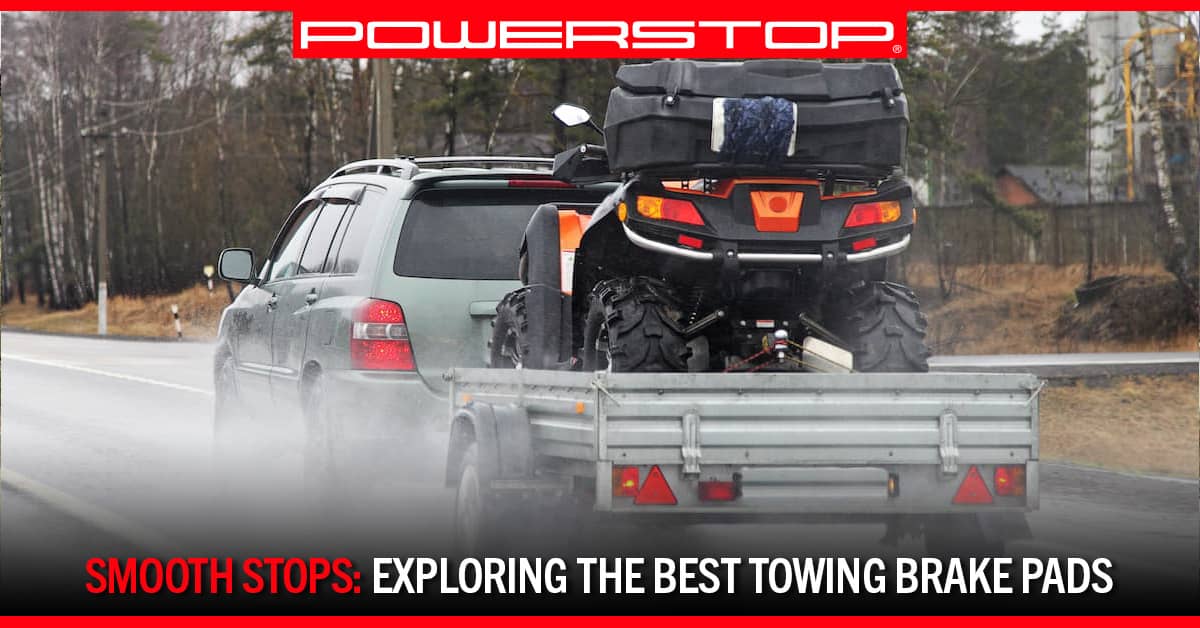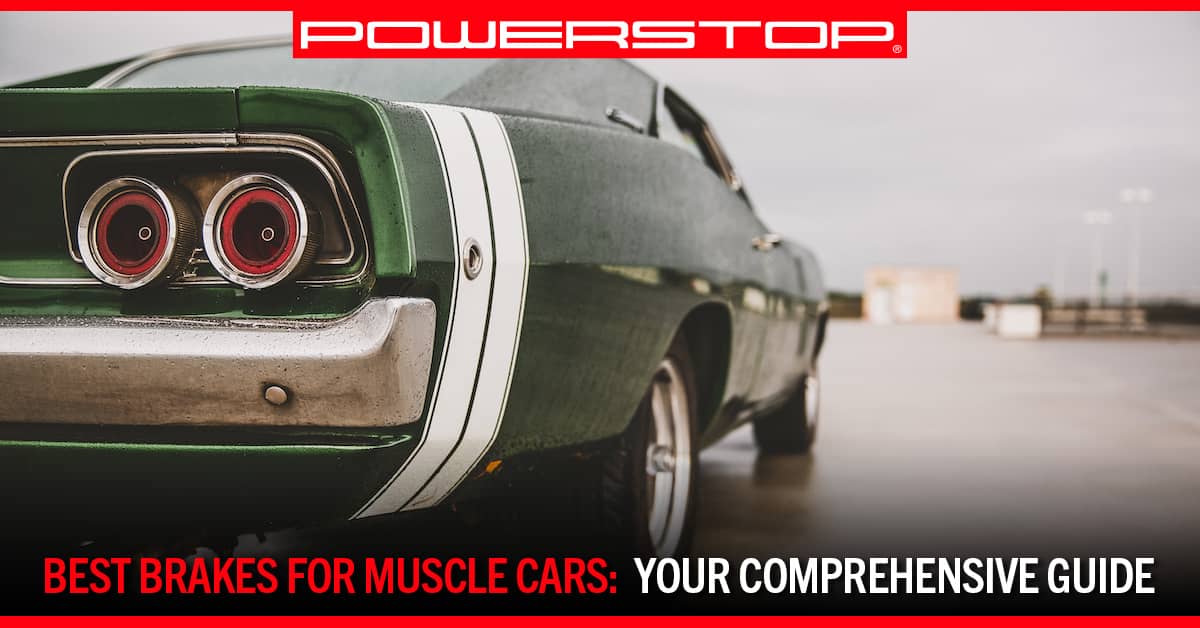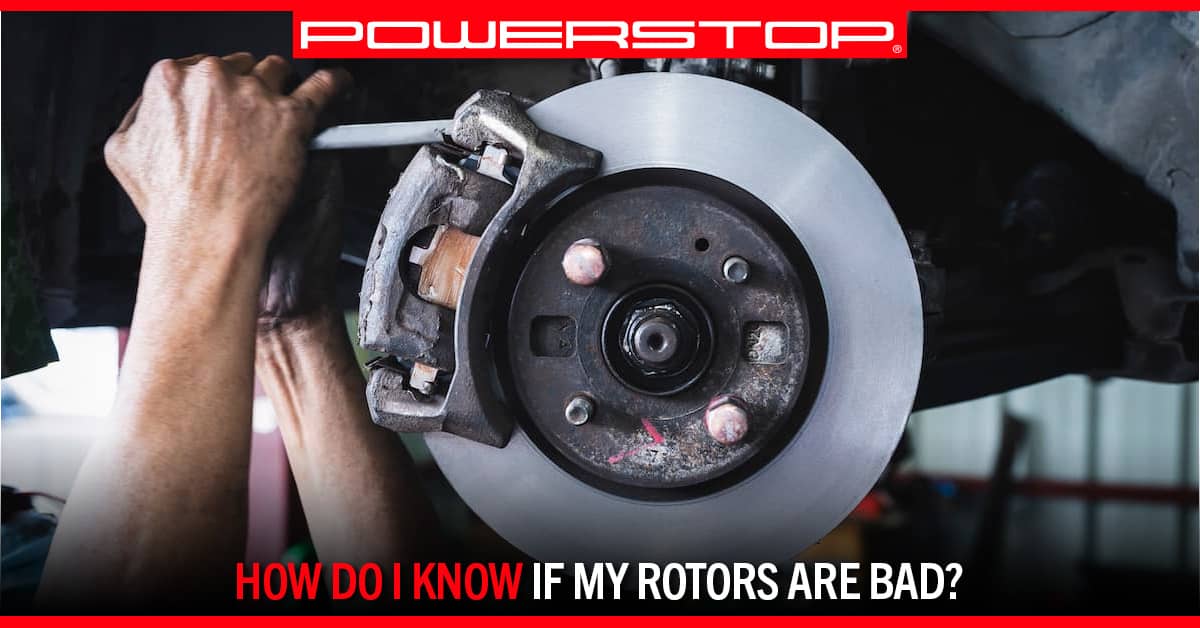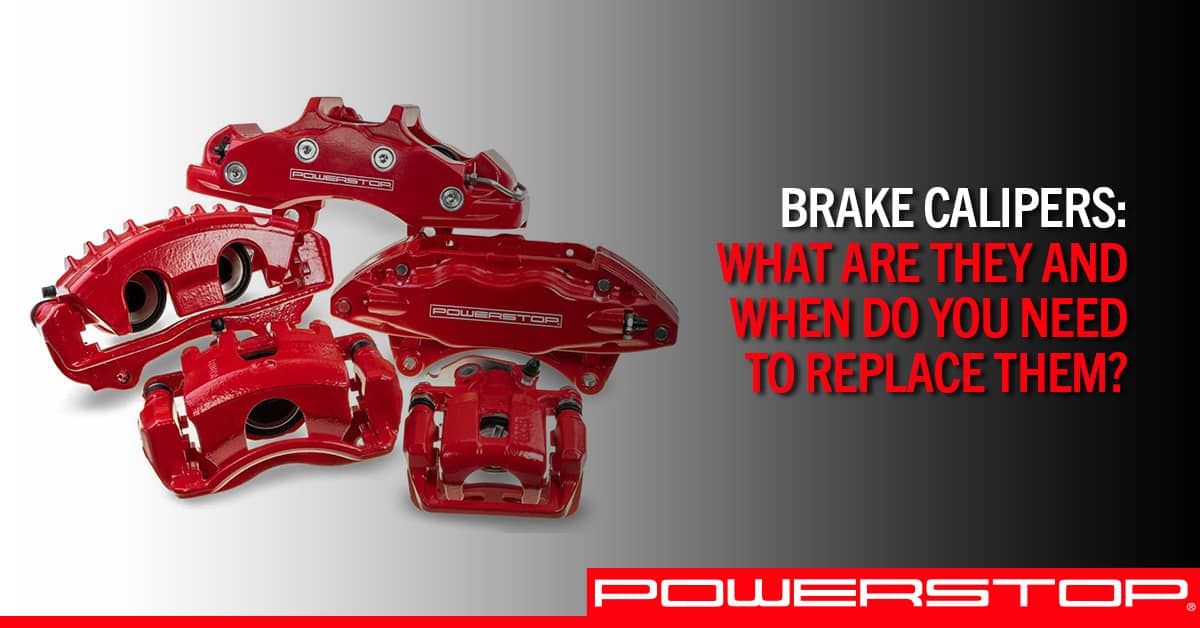
When looking for the best towing brake pads, nothing is more important than ensuring a safe and smooth stopping experience. The key to achieving this lies in selecting the right brake pads for your towing vehicle. In this guide, we will break down the essential factors to consider when buying towing brake pads and provide some practical tips to help ensure you have the safest towing experience possible.
What Are the Best Brake Pads for Towing?
When you increase the weight of a vehicle by towing a trailer, carrying a load, or changing to larger wheels and tires, it alters how the stock brake system performs. These changes may surpass the designed capacity of the original braking components. In these cases, it is recommended to replace or upgrade the brake parts to improve stopping power. Trucks involved in towing or carrying heavy loads require enhanced brake performance and increased stopping power due to the additional weight on the vehicle.
Factors to Consider
Material Composition
Brake pads for towing are typically made from a variety of materials, each with its own set of advantages. Ceramic brake pads are known for their durability and low dust production, making them a popular choice for towing.
Heat Resistance
Towing generates additional heat in the braking system. Opt for brake pads with high heat resistance to prevent brake fade and maintain consistent stopping performance, especially during prolonged downhill descents.
Rotor Compatibility
Consider the type of rotors your vehicle uses when selecting towing brake pads. Because towing generates additional heat in the braking system, it’s a good idea to opt for rotors that can reduce heat. PowerStop’s Drilled & Slotted Rotors are specifically designed to provide maximum cooling.
Know Your Towing Capacity
Determining towing capacity involves several factors, and it’s more complex than simply looking for a single number in pounds. The towing capacity of a vehicle is essentially the maximum weight it can safely pull, but this figure depends on various factors, such as the vehicle’s configuration, existing weight, and how the load is distributed and controlled.
Manufacturers provide a towing capacity estimate for each vehicle they produce, but this assumes the vehicle is carrying only the driver and no additional load. It’s crucial to note that if you plan to tow a trailer with family and gear, the manufacturer’s calculations may not be accurate for your specific situation.
To calculate towing capacity, you need to know the Gross Combined Weight Rating (GCWR) of both the tow vehicle and the trailer, along with all the cargo they will carry. Additionally, you must be aware of the tow vehicle’s curb weight, which is its weight when filled with gas and other fluids.
The towing capacity is then determined by subtracting the tow vehicle’s curb weight from its GCWR. It’s emphasized that exceeding the specified towing capacity is not recommended, and for safety reasons, staying below 10% of the maximum capacity is advised to account for miscalculations and shifting loads during towing.
Terms like Gross Vehicle Weight Rating (GVWR), Gross Trailer Weight (GTW), and tongue weight are essential to understand in the context of towing. GVWR is the maximum total weight a vehicle can safely operate with, while GTW is the combined weight of the trailer and its cargo. Tongue weight refers to the force pushing down on the trailer hitch by the load being hauled.
Trailer hitch classes are also a crucial consideration. They are divided into five classes, each suitable for different types of vehicles and towing capacities. Class I is for small and midsize cars, while Class V is for heavy-duty trucks and SUVs configured for towing heavy loads.
To find the towing capacity of a specific vehicle, you can refer to the manufacturer’s website, check the owner’s manual, or use online tools like towing calculators provided by truck and SUV manufacturers based on your vehicle’s VIN.
What Are the Best Towing Brake Pads?
PowerStop’s Z36 Truck & Tow Carbon-Fiber Ceramic Brake Pads are specifically designed for maximum towing, hauling, and off-road performance. The low-dust ceramic formula, infused with carbon fiber, provides severe-duty stopping power for trucks and SUVs, reduces brake dust, and eliminates noise. The kit includes premium stainless-steel hardware and high-temp brake lubricant, simplifying the brake job process.
Notable features include:
- Premium stainless-steel shims for improved heat dissipation and virtually noise-free braking
- Positive mold technology for consistent wear
- Rust-resistant powder-coated backing plate
- Bolt-on, OEM fitment with no vehicle modifications required
PowerStop backs the Z36 Truck & Tow Carbon-Fiber Ceramic Brake Pads with a 60-day hassle-free return policy and a 90-day/3,000-mile warranty for dependable performance.
Benefits of Upgrading Your Brake Pads for Towing
Even if you only use your truck for occasional towing, it’s still crucial to have the right braking system. You can make your truck’s brakes safer for towing by installing the PowerStop Z36 Truck & Tow Brake Upgrade Kit. It is specially designed to deliver maximum braking power for trucks, SUVs, and 4x4s that tow, haul, and go off-road.
The Carbon-Fiber Ceramic Formula in the brake pads ensures dust-free braking, and the Drilled & Slotted Rotors help reduce heat. With the right brakes, your truck or 4X4 can deliver powerful stops under heavy loads while maintaining excellent drivability when not towing.
Here are some reasons why you should consider upgrading to PowerStop’s Z36 Truck & Tow Brake Upgrade Kit for your truck and tow brake system:
Vibration Reduction
Balanced rotors are essential for reliable operation. PowerStop’s mill-balanced rotors are carefully inspected to prevent imbalance issues, reducing vibration and noise while extending the life of your brakes.
Read More: What Causes the Brake Pedal to Pulse or Vibrate?
Heat Resistance
For towing or driving a heavier vehicle, you need brake pads that can handle both cold and hot temperatures. Drilled & Slotted Rotors in the PowerStop Z36 Truck & Tow Brake Upgrade Kit increase cooling and help prevent overheating during extreme braking, ensuring reliable friction.
Faster Break-In
Properly breaking in new brake pads and rotors is crucial for effective performance. PowerStop’s thermal scorched brake pads help with this process by curing the first 1mm of friction material, allowing for faster break-in.
Read More: What Is the Break-In Procedure?
Low Dust
While a small amount of brake pad dust is normal, excessive amounts can indicate an issue. PowerStop’s low-dust brake pads, made with a carbon fiber and ceramic formula, maximize stopping power and keep your wheels clean.
Noise-Free Braking
For a smooth and quiet ride, PowerStop’s brake pads come with stainless steel shims to ensure reliable, noise-free performance.
Read More: Brake Squeal – Causes and Solutions
Greater Stopping Power
PowerStop’s Carbon-Fiber Ceramic Brake Pad formula is top-notch for truck and tow brake systems. The ceramic formula, reinforced with carbon fibers, can withstand intense heat, providing the extra brake torque needed for towing, carrying heavy loads, or using large wheels/tires.
Tips for Braking While Hauling or Towing
Hauling or towing a trailer can be a challenging task, especially when it comes to braking. The added weight and momentum can make stopping safely more complex than when driving without a load. To ensure the safety of yourself and others on the road, it’s crucial to follow some key tips for braking while hauling or towing.
Anticipate Stops
One of the most important tips for braking while hauling or towing is to anticipate stops. Being aware of upcoming stops or slowdowns allows you to plan your braking strategy in advance. Keep an eye on road signs, traffic signals, and the behavior of surrounding vehicles to gauge when you might need to start slowing down.
Plan for More Braking Time
When hauling or towing, your vehicle’s weight increases, affecting its braking distance. To compensate for this, plan for more braking time than you would need when driving without a load. Recognize that it will take longer to bring your vehicle to a complete stop and adjust your speed accordingly.
Begin Braking Earlier
Starting the braking process earlier is a crucial aspect of safe towing. Instead of waiting until the last moment, gradually apply the brakes well in advance. This approach allows the brakes to work more efficiently and reduces the strain on both your vehicle and the trailer.
Don’t Slam on Brakes
Avoid the temptation to slam on the brakes, especially when hauling or towing. Rapid, forceful braking can lead to skidding or loss of control, increasing the risk of accidents. Apply the brakes smoothly and steadily, giving your vehicle and trailer the opportunity to slow down in a controlled manner.
Avoid Riding Brakes to Inhibit Overheating
Continuous braking, known as “riding the brakes,” can lead to overheating and reduced braking efficiency. This is particularly true when hauling heavy loads. To prevent brake overheating, release the brake pedal periodically to allow the brakes to cool down. This practice can extend the life of your braking system and improve overall safety.
Watch the Video: Brakes 101: Your Brakes and Towing Safety & Tips
Remain Alert to the Road and Your Surroundings
Staying vigilant is crucial when hauling or towing. Pay close attention to the road conditions, traffic, and any potential hazards. Being aware of your surroundings allows you to react promptly to unexpected situations and make necessary adjustments to your braking strategy.
No Tailgating – Leave Space Between You and the Vehicle Ahead
Maintaining a safe following distance is essential, especially when hauling or towing. Tailgating reduces your reaction time and increases the risk of collisions. Leave ample space between your vehicle and the one ahead to provide room for safe braking. This extra space is vital, as the added weight can make it more challenging to stop quickly.
Have a Question? PowerStop Can Help
PowerStop is dedicated to delivering top-quality performance brakes for nearly every vehicle on the road. If you have a question about any of our products, contact us today online or toll-free at (888) 863-4415. Our customer service team is available to answer your questions Monday through Friday from 8 a.m. to 5 p.m. (CST). Se habla español.
Back



